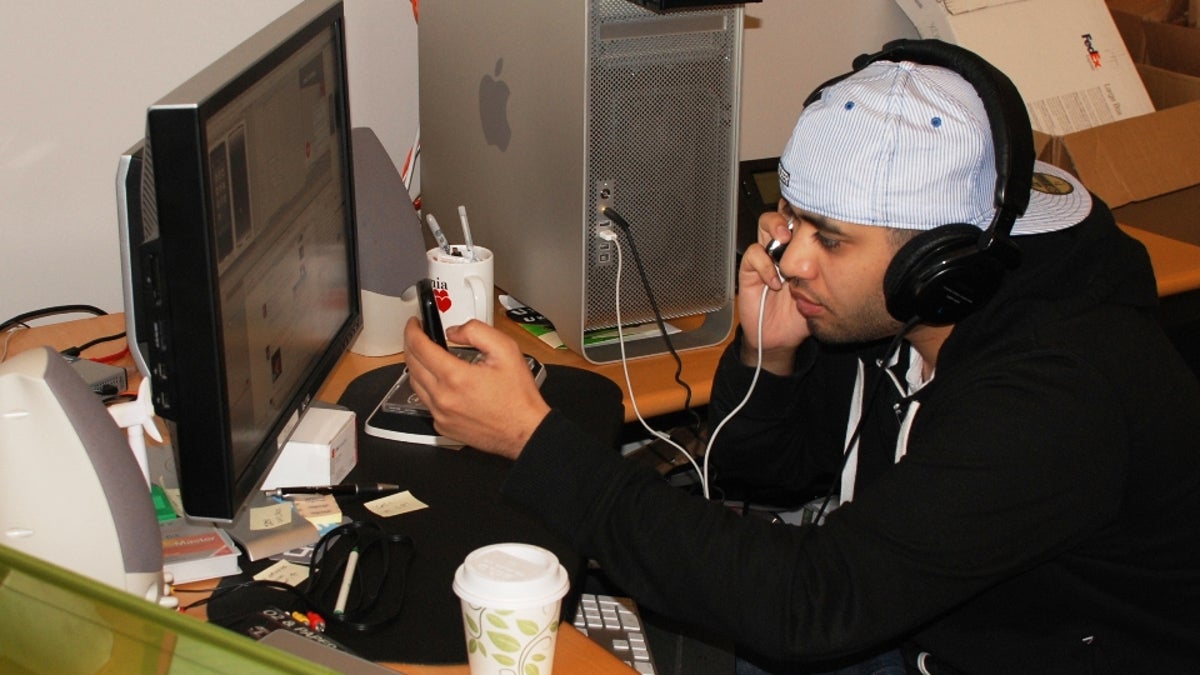Habitual multitaskers do it badly, study shows
People who regularly deal with several streams of electronic information simultaneously are no more attentive or productive than those who prefer doing one thing at a time, Stanford researchers find.

If you can't read through this article in one sitting, you may be in serious trouble. The good news is you wouldn't discover what your problem is. Are you still reading?
It has been my presumption that multitaskers are generally more productive than people who prefer to do one thing at a time. Typical examples of those with what I call "occupational short attention span" tend to be workers in high-tech environments, including me and most of my CNET co-workers.
At any given time, we're bombarded with e-mails, text messages, instant messages, and phone calls. That's not to mention Facebook and Twitter feeds. And I want our boss to believe that all that communicating makes us a more productive bunch. Turns out that could be all wrong.
According to a new study released by a group of Stanford University researchers Tuesday, people who regularly deal with several streams of electronic information simultaneously do not pay attention, control their memory, or switch from one job to another any better than those who prefer to complete one task at a time. Actually, they fare worse.
The study, whose findings are published in the August 24 edition of the Proceedings of the National Academy of Sciences, involved about 100 students being put through three tests. In each, the researchers split participants into two groups: those who regularly do a lot of media multitasking and those who don't.
In one experiment, the groups were shown sets of two red rectangles. One showed the two rectangles alone, the other showed the two red rectangles surrounded by two, four, or six blue rectangles. Each configuration was flashed twice, and the participants had to determine whether the two red rectangles in the second frame were in a different position than those in the first frame.
They were told to ignore the blue rectangles, and the low multitaskers had no problem doing that. The high multitaskers, on the other hand, were constantly distracted by the irrelevant blue images.
As multitaskers don't seem to ignore extra stimuli, researchers thought they would have good memories, which led to the second test involving remembering sequences of alphabetical letters. The result? The high multitaskers did a lousy job of remembering when a letter was making a repeat appearance.
The last test was aimed at determining if multitaskers are good at switching from one task to another, which forms the basis of multitasking. Participants were shown images of letters and numbers at the same time and instructed what to focus on. When they were told to pay attention to numbers, they had to determine if the digits were even or odd. When told to concentrate on letters, they had to say whether they were vowels or consonants.
Once again, the more the study subjects multitasked, the worse they did in this test, the study found. In conclusion, the researchers realized those heavy media multitaskers are paying a big mental price for their habits since everything appears to distract them.
Who doesn't multitask these days?
Now these findings are very perplexing to me. How could the researchers find that many people to put in the group of nonmultitaskers? Aren't all students these days busy with Facebook and text messaging and equipped with cell phones and iPods?
Anyhow, the researchers are still trying to find out whether chronic media multitaskers are born with an inability to concentrate or pick up the habits and damage their cognitive control along the way. They are, however, convinced that the minds of multitaskers are not working as well as they could.
So maybe it's time I stopped checking e-mail or uploading mobile photos to Facebook while I'm at a bar watching football with my friends or quit watching movie trailers on the computer screen while having lunch. Most importantly, I should probably tell my boss that I should cut down on my workload as it's now a scientific fact that you can be more productive by doing less.

